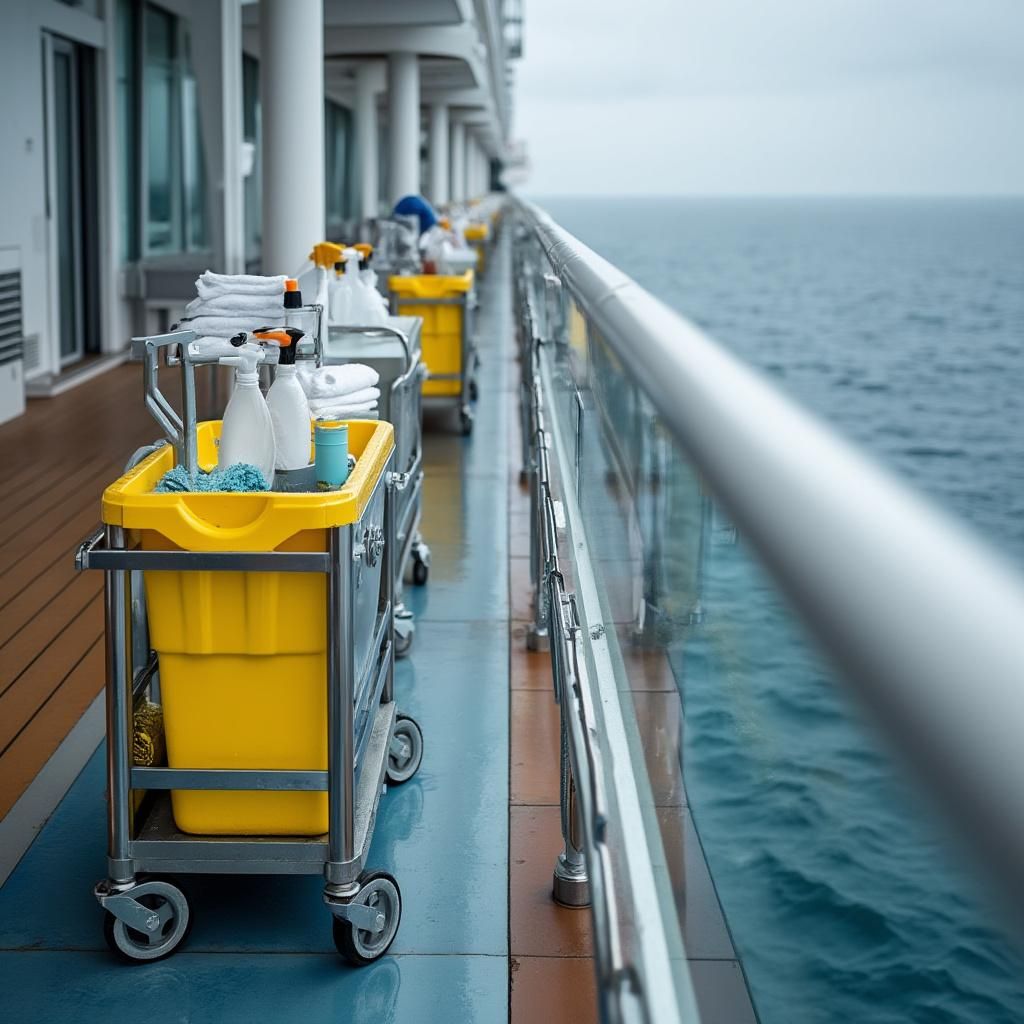CDC Logs Norovirus on Serenade of the Seas—What Cruisers Should Know
CDC logged a norovirus outbreak on Serenade of the Seas. See the numbers, what the response means, and practical tips to reduce your risk onboard.

A U.S. Centers for Disease Control and Prevention report confirms a gastrointestinal illness outbreak—identified as norovirus—aboard Royal Caribbean’s Serenade of the Seas on the September 19–October 2, 2025 voyage. According to the CDC’s Vessel Sanitation Program, 63 passengers (3.36%) and one crew member reported diarrhea and vomiting.
What the CDC report actually says
Per the CDC’s Vessel Sanitation Program outbreak update, Serenade of the Seas met the threshold for a reportable gastrointestinal (GI) outbreak on its September 19–October 2, 2025 sailing. The agency cites 63 passenger cases and one crew case, with diarrhea and vomiting as the primary symptoms. The ship and operator implemented increased cleaning and disinfection, isolated symptomatic travelers, and collected specimens for testing.
The CDC publicly posts cruise GI outbreaks that meet defined criteria—typically when 3% or more of passengers or crew report GI illness during a voyage, among other factors. Hitting that threshold doesn’t mean a ship is “unsafe.” It means enhanced surveillance is working and triggers a coordinated response.
Put the numbers in perspective
Norovirus is the leading cause of acute gastroenteritis in the U.S., and it spreads efficiently in close-contact settings, including schools, care facilities, and yes, cruise ships. But cruise outbreaks represent a tiny fraction of overall norovirus cases, according to the CDC. On ships, strict reporting rules and frequent testing can make outbreaks more visible than comparable outbreaks on land.
A 3.36% passenger illness rate is enough to show up on the CDC dashboard, but most guests on this voyage did not get sick. The key question for cruisers isn’t “Are outbreaks possible?”—they are with any mass gathering—but “How quickly is the response?” Here, the CDC says standard containment steps were deployed: isolation of cases, intensified sanitization, and specimen collection to confirm the pathogen.
What happens onboard during a GI outbreak
When GI illness is detected aboard a U.S.-bound or U.S.-departing cruise, ship medical teams begin active monitoring and treatment. According to the CDC’s Vessel Sanitation Program, standard actions include:
- Isolating symptomatic passengers and crew to reduce transmission
- Increasing cleaning and disinfection, especially in high-touch areas
- Reinforcing handwashing protocols; placing additional hygiene signage
- Adjusting food service (e.g., moving to crew-served buffets)
- Reporting case counts to the CDC and cooperating with inspections and guidance
These moves can feel disruptive—room service-only for sick guests, temporary closures, or altered dining flow—but they’re designed to break the chain of transmission quickly.
The real risk—and how to reduce it
Cruises concentrate people, which can amplify highly contagious viruses like norovirus. However, that same environment allows for rapid interventions and standardized hygiene. Your risk is manageable with a few non-negotiables:
- Wash hands with soap and water for at least 20 seconds, especially after bathroom use and before eating. Alcohol-based sanitizers are less effective against norovirus; soap-and-water is best, per the CDC.
- At buffets, avoid touching shared utensils to your plate; consider crew-served options when offered.
- If you develop symptoms (vomiting, diarrhea), report immediately to medical. Early isolation shortens outbreaks—and often reduces shipwide disruption.
- Don’t sail sick. If you’re symptomatic within 48 hours before embarkation, contact the line; many encourage or require deferring travel.
- Consider travel insurance that covers medical care and trip interruption. Policies vary widely.
Quick stats from the CDC report
- Ship: Serenade of the Seas (Royal Caribbean International)
- Voyage dates: September 19–October 2, 2025
- Ill passengers: 63 (3.36%)
- Ill crew: 1
- Predominant symptoms: Diarrhea, vomiting
- Pathogen: Norovirus (suspected/confirmed per CDC VSP update)
- Response: Increased cleaning, isolation of cases, specimen collection
What this means if you’re booked to sail soon
You don’t need to cancel a cruise because of a single norovirus report. Outbreaks are closely monitored, and ships reset with deep cleaning between sailings. That said, it’s smart to plan around the practical realities:
Pros:
- Ships move fast: medical teams, isolation protocols, and cleaning kick in quickly
- Transparent reporting via the CDC helps travelers make informed decisions
- Outbreaks are usually short-lived and contained to a small share of guests
Cons:
- If you get sick, you’ll likely be confined to your cabin until 24–48 hours after symptoms stop
- Dining and activities may be modified during heightened sanitation
- Medical visits and medication can add costs if uninsured
If you’re sailing imminently, watch for emails or app notifications from your cruise line. Expect reminders about hand hygiene, and don’t be surprised by tweaks to self-serve dining if a ship elevates precautions.
The broader 2025 pattern—and the takeaway
The CDC’s outbreak list shows multiple GI events across cruise lines in 2025. That pattern reflects both the contagious nature of norovirus and the rigor of cruise health surveillance. The big picture isn’t “cruises are uniquely risky”; it’s that cruise ships uniquely document and report what many venues miss.
For travelers, the playbook stays simple: soap-and-water handwashing, report symptoms promptly, and follow crew guidance if protocols tighten. Those steps protect you—and help the ship finish the voyage with as little disruption as possible.
Summary
- CDC confirmed a reportable norovirus outbreak on Serenade of the Seas (Sept 19–Oct 2, 2025)
- 63 passengers (3.36%) and one crew member reported GI illness
- Standard response actions: isolation, enhanced cleaning, specimen collection
- Cruise outbreaks are visible because surveillance is strict—not because ships are uniquely unsafe
- Good handwashing and early reporting are your best defenses
